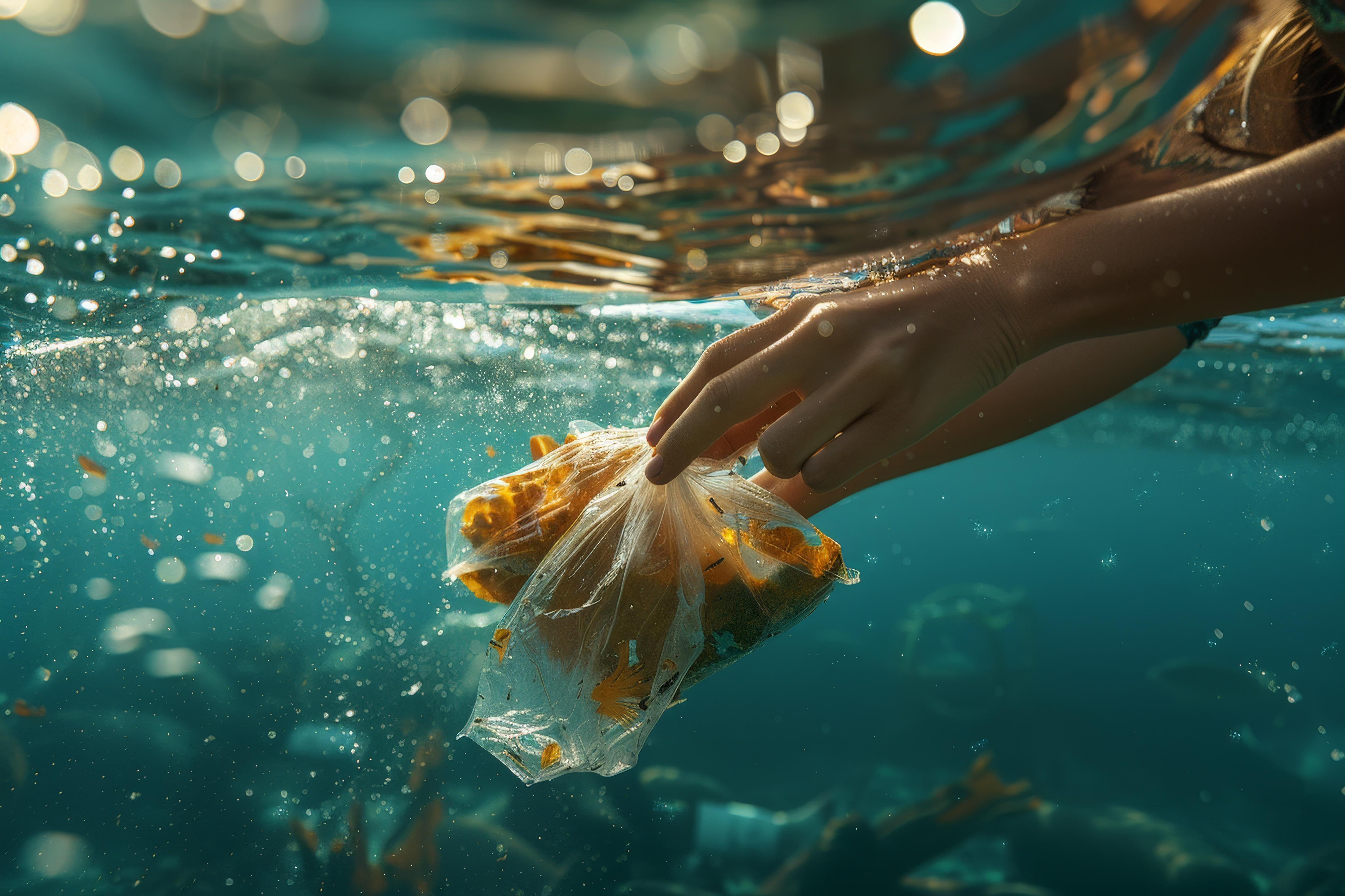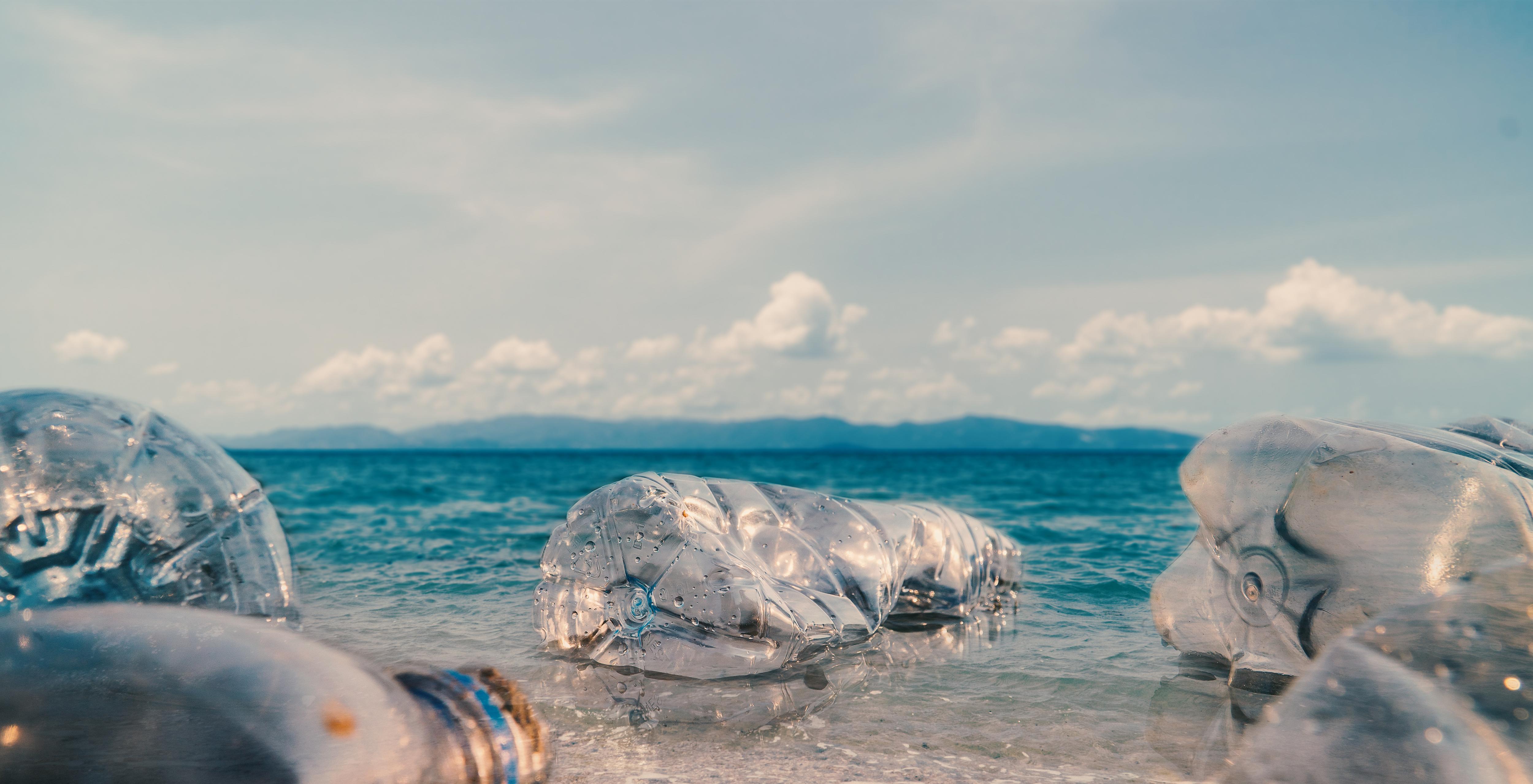Sustainability in the yachting industry

As we are all becoming more environmentally conscious, most yacht owners and charter guests are keen to minimise any negative impact on marine life that yachting may incur. To meet this demand, the yachting industry is incorporating sustainability initiatives at all levels, from yacht design and construction to offering advice on sustainability at sea.
How important is sustainability in yachting, and how can we achieve it?

Yachting is intrinsically linked to the world’s oceans, which are now under threat from climate change, plastic pollution, habitat destruction, and overfishing. The world’s oceans cover 72% of our planet and are essential to life, producing over half the world’s oxygen and absorbing carbon dioxide.
Plastic leakage, for example, is both endangering marine life and harming biodiverse ecosystems, with eight million tonnes of plastic leaking into the ocean every year and taking hundreds of years to break down. The Great Pacific Garbage Patch in the North Pacific Ocean, for example, covers a staggering 1.6 million square kilometres – roughly three times the size of France.
These are shocking statistics, but the yachting industry is making great strides in working toward protecting our oceans for future generations to enjoy.
How the yachting industry is playing its part
The International Marine Organisation has created a roadmap for a 50% reduction in CO² emissions by 2050. As clients are increasingly requesting yachts based on their green credentials, yacht makers are responding by incorporating a range of innovative new measures into their designs.
These include using recycled materials and installing onboard wastewater recovery and water filtering systems into new-build yachts.
Other developments include new hybrid propulsion engines, which combine battery and fuel to ensure clean exhausts, lower fuel consumption and fewer emissions.
Likewise, solar panels are being installed that are free of emissions and greenhouse gases. The beauty of both these developments is they are noise-free, guaranteeing peaceful anchorages.
Such energy-saving measures are not only good for the planet, but by reducing noise levels and running costs, they are highly attractive to owners, making sustainability a win-win situation.
Sustainable yacht interiors
In their bid to create sustainable yachts that are still aesthetically pleasing and luxurious, designers are becoming increasingly innovative in their use of recycled and repurposed new materials, such as reclaimed wood or artificial teak. Then there are innovative new materials, such as Green Blade wall coverings made from banana plant trunks and mushroom fibres as an alternative to leather.
Fraser and sustainability
The team at Fraser has placed sustainability at the heart of its operations. Our yacht management team has released a dedicated ‘Owners and Captains Guide to Energy Saving Opportunities’ that can be implemented onboard, and all Fraser departments are actively promoting carbon offsetting to their yacht fleets. This enables yacht owners to offset flights, transfers and accommodation emissions by donating to a range of carbon dioxide-reducing projects, such as reforesting or wind farms.
Fraser has also created a dedicated GREEN TEAM, which aims to reduce the carbon footprint in all Fraser offices. Their name, chosen to maintain the focus on their ultimate goals and objectives, is FUTURE, which stands for Fraser Unites To Universally Respect the Environment.
Fraser’s corporate initiatives include carbon offsetting all corporate travel with funds invested into sustainable energy projects, and using green electricity providers wherever possible. Our team works with environmentally-conscious suppliers for all services and provisions and is a proud partner of Plastic Oceans, an organisation that strives to increase awareness about plastic pollution and drive behavioural change.
We do not use single-use plastics in our offices, encourage digital documents and storage over printing, and have installed selective recycling facilities for paper, batteries, ink cartridges and computers. We also encourage low energy consumption throughout all offices and have water fountains linked to the main water circuit, with employees each given an eco-friendly one-litre re-usable water bottle.
In short, we promote the ‘5 Rs’ throughout the workplace: Reuse, Refuse, Reduce, Recycle and Return to the earth.
Making onboard operations greener
Onboard practices can also help minimise a yacht’s carbon footprint. For example, many yachts have banned plastic water bottles, providing guests instead with recyclable water bottles and carrier bags for their on-shore visits.
Other green initiatives include utilising TBT-free antifouling paint on hulls to avoid damaging micro-organisms, using eco-friendly cleaning products, and sorting waste and recycling plastics.
Most yacht chefs already source local produce, but for further reduction of food waste on board, they can be encouraged to create menu plans according to destination, to check the sustainability index of any fish bought, and incorporate as many vegetables as possible into their dishes.
For more information, Fraser’s technical department is happy to advise clients on the reduction of motor noise and vibration, while the Fraser Green Team can help with the implementation of various measures of sustainability.
We all have the right to enjoy the world’s oceans, but it’s vital we preserve them for future generations, too.
For more information on which green yachts for charter and yachts for sale Fraser offers click through to Sustainable Yachting